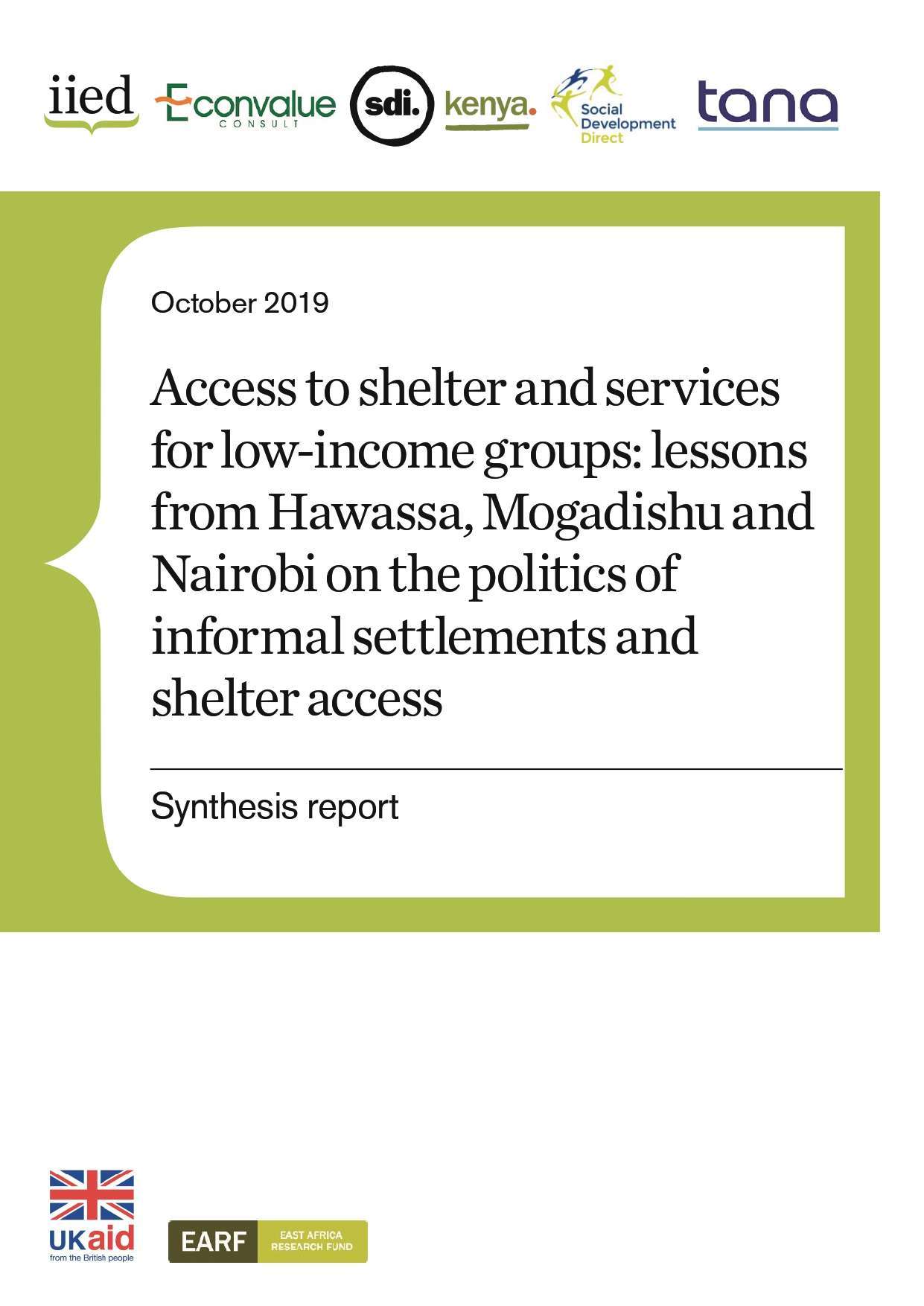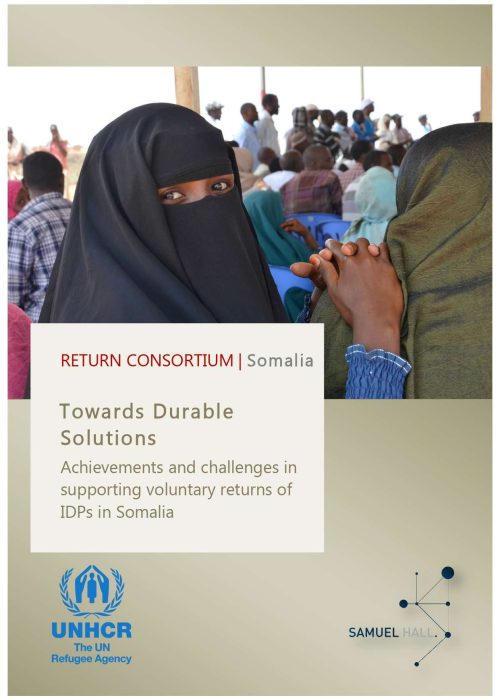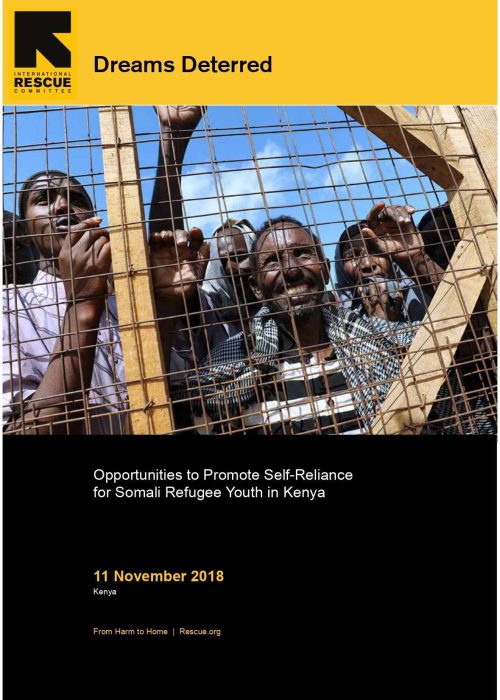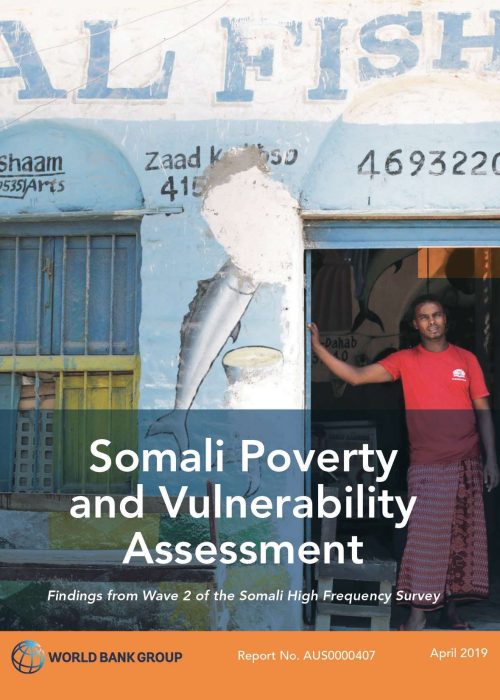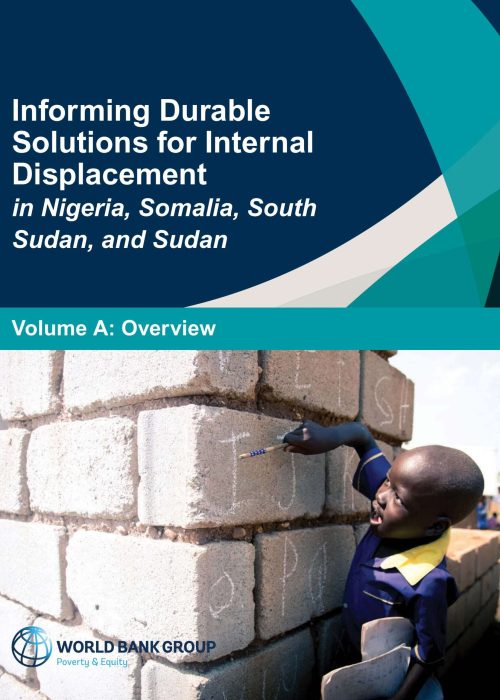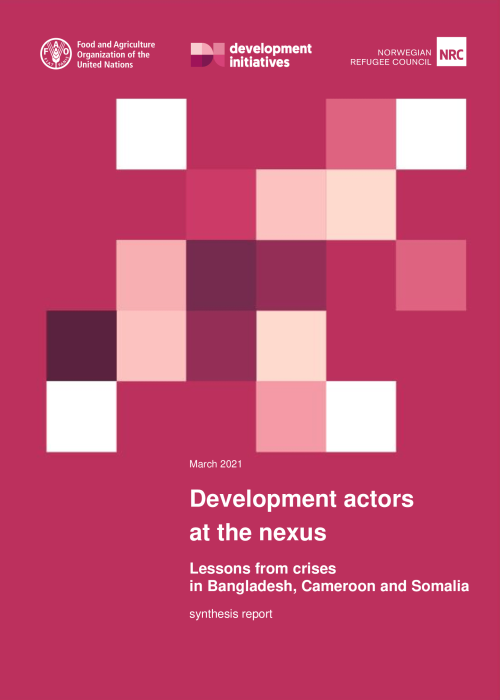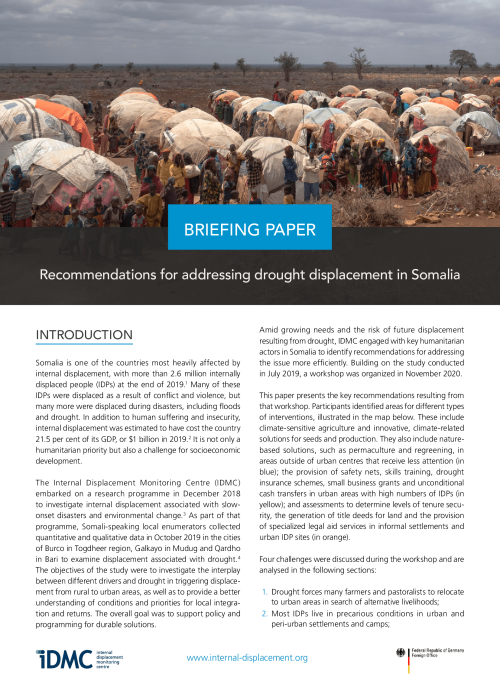This report synthesises key findings and lessons from a three-city study on access to shelter and basic services for low-income groups in East Africa (Nairobi, Kenya; Mogadishu, Somalia; and Hawassa, Ethiopia). Guided by political economy analysis, this paper sets out some key lessons for agencies operating in cities, highlighting why and how city dwellers make certain shelter choices, and providing suggestions on how to respond.
Access to shelter and services for low-income groups: lessons from Hawassa, Mogadishu and Nairobi on the politics of informal settlements and shelter access
This report synthesises key findings and lessons from a three-city study on access to shelter and basic services for low-income groups in East Africa (Nairobi, Kenya; Mogadishu, Somalia; and Hawassa, Ethiopia).
Share
| Author(s) | |
|---|---|
| Funded By | UK aid, UK Department for International Development's East Africa Research Fund (EARF), UKAID |
| Geographic Coverage | |
| Pages | |
| Publishing Organizations | |
| Theme | |
| Type of Study | |
| Year Published |
